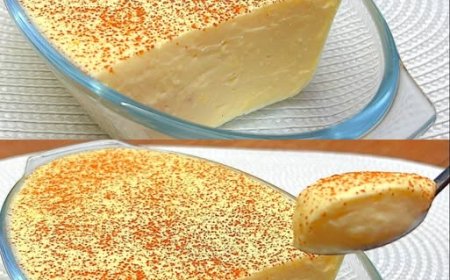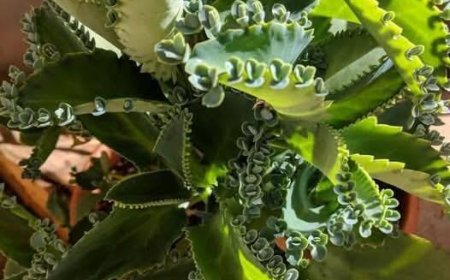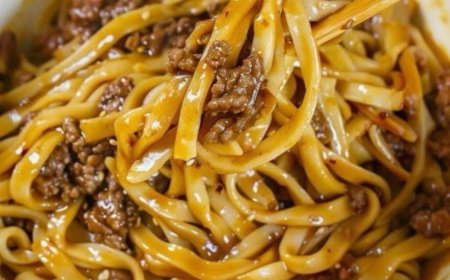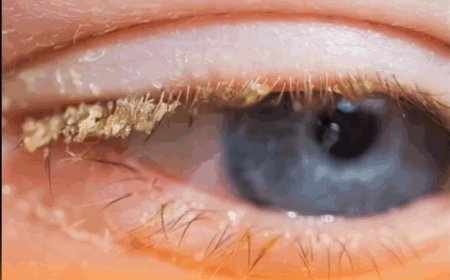An invisible danger lurks on your plate: these risky everyday foods
We often think of food safety in terms of freshness, cleanliness, or expiration dates, but some of the most unexpected risks hiding on our plates come from sources we rarely consider: parasites. These invisible intruders can slip into everyday meals and, without proper precautions, may lead to infections that affect digestion, energy levels, and overall health. The surprising part is that many of the foods we trust and enjoy regularly — from undercooked meat to raw seafood or even freshly picked vegetables — can occasionally harbor microscopic organisms that the naked eye cannot detect.
1.
An invisible danger lurks on your plate: these risky everyday foods
Some common dishes hide unsuspected parasites, capable of disrupting your health. Did you know that your favourite dishes could be affected? Find out how to identify them and avoid their pitfalls.
These foods that hide parasites: how to avoid them on a daily basis
Undercooked meats: a little-known danger
Rare meat and raw egg placed on a wooden board
In France, enjoying pink or rare meat is a well-established tradition, whether it’s a homemade tartare or a little-cooked beef tenderloin. However, this practice carries significant health risks. Undercooked meats – especially pork, ground beef and raw seafood – can harbour parasites such as tapeworms, trichinellae or nematodes anisakis.
The increase in cases of parasitic infection, although less frequent than in Asia, follows the growing popularity of raw fish dishes in France. The parasite Toxoplasma gondii, on the other hand, is sometimes found in poorly cooked farmed or game meat.
Our practical advice: cook thoroughly, especially for sensitive populations. For raw fish, opt for products that have been industrially frozen (-20°C for 24 hours), as required by European legislation for restaurateurs.
Fresh seafood platter at a market
Raw seafood: a risky treat
It’s hard to resist fresh oysters or a platter of shellfish, especially on festive occasions. However, these marine organisms, which filter litres of seawater daily, can accumulate various biological contaminants, including parasites such as liver flukes, but also bacterial or viral pathogens.
While the French industry applies strict health controls, vigilance is required when buying outside controlled channels or for direct consumption by the sea.
Improperly cleaned garden products: beware of surprises
Fresh vegetables from the garden ready to be washed
The trend of “eating local” and urban vegetable gardens is experiencing remarkable growth. Nevertheless, a garden salad or freshly picked strawberries, if not properly washed, can transmit intestinal parasites like Giardia or Toxoplasma. These organisms usually come from contaminated soil, untreated water, or contact with carrier animals.
The plants most affected are those in direct contact with the soil: lettuce, fresh herbs, root vegetables and berries. Toxoplasmosis, a common parasitic infection, poses a particular risk to unimmunized pregnant women.
The simple solution: a thorough washing under running water for all plants, even from organic farming. Using a vegetable brush helps remove earthy residue. Some nutritionists suggest rinsing with vinegar water for optimal hygiene.
Raw milk cheeses: between tradition and caution
The French cheese heritage includes many specialties made from unpasteurized milk, from Camembert AOP to Bleu d’Auvergne. However, these products can harbour undesirable microorganisms such as Cryptosporidium, which is responsible for severe digestive disorders.
Although producers respect strict hygiene standards, there is no such thing as zero risk, especially for young cheeses or cheeses from small farms. Immunocompromised people, young children and seniors must be extra vigilant.
Our tip: in high-risk situations, choose pasteurised dairy products. If you choose raw milk, check its freshness, its origin and maintain an impeccable cold chain.
Untreated water: the invisible risk
In mainland France, the water in the public network is generally of good quality, but certain situations (works, flooding, old networks) can occasionally compromise its drinkability. Resistant parasites such as Giardia or Cryptosporidium sometimes manage to break through treatment barriers.
The danger is more pronounced in rural areas, during outdoor activities or when this water is used to wash raw food.
Essential precautions: if in doubt about the quality of the water, prefer bottled water or boil it for a minute. When travelling, a portable filter or disinfectant tablets can be invaluable.
Anti-pest strategies for a serene diet
Master safe cooking techniques
Cooking temperatures: pork at least 63°C, beef at 71°C, fish until the fibres are completely dissociated.
Crustaceans: cooking is successful when the shells open
spontaneously.
Plant products: thorough cleaning under running water.
Optimize your purchases and storage
Komplettes Rezept im Kommentar



























